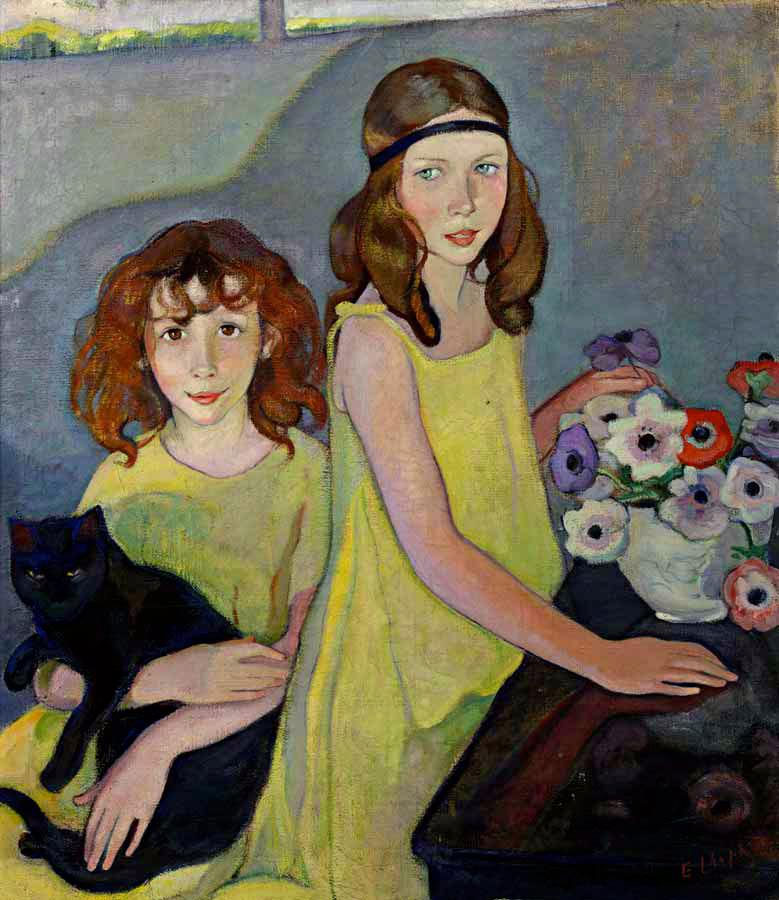
In a post presenting the poem Ad Domnulam Suam by Ernest Dowson, I said that Dowson wrote it in October 1890, and that it was probably inspired by his beloved Adelaide Foltinowicz, then aged twelve years and a half. In it, he expressed his love for a young girl, and at the same time a desire to stop before this love could grow too strong; he also said that the girl would soon grow out of childhood, and this could spell the end of that love. He seemed to be afraid that his love for Adelaide would finally end as she grew into adulthood.
Indeed, throughout his earlier correspondence recurs his devotion for little girls and at the same time his repulsion for their growing up into womanhood. In a letter to Charles Sayle dated October 1, 1888, he wrote:
There are, as you say, still books, dogs and little girls of seven years old in it but unhappily. One begins to yawn over the books and the dogs die and, oh Sayle, Sayle — the little girls grow up, and become those very objectionable animals, women.
Then in a letter to Arthur Moore of January 3, 1889, he said about women:
What a charming world it would be if they did not exist—or rather if they never grew into their teens.
Finally in another letter to Arthur Moore of August 27, 1890, he wrote:
Quelle dommage that the world isnt composed entirely of little girls from 6–12.
But his love for Adelaide was so strong that it did not diminish as she grew into her teens and her look changed. Thus on March 5, 1891 (while Adelaide was approaching her 13th birthday) he wrote to Victor Plarr:
Die Kleine instead of changing, altering, repelling, as I hoped/feared might happen, in the nature of things, seems to grow in grace & favour daily. What a terrible, lamentable thing growth is! It “makes me mad” to think that in a year or two at most the most perfect exquisite relation I have ever succeeded in making must naturally end. Yes it makes me mad! One ought to be able to cease caring for anyone exactly when one wished; it’s too difficult: or one ought to be able to live entirely in the present. Something is distinctly rotten in the State of Denmark.
Dowson’s enchanted astonishment at the constancy of his love for Adelaide underlies his poem Growth. It was first published in The Second Book of the Rhymer’s Club, 1894. According to Flower and Maas, Dowson wrote it at the time he was making his awkward marriage proposal to Adelaide in April 1893, while her father was dying. She refused his offer. In a letter to Samuel Smith sent at the end of that month, after telling the story he wrote:
The important thing is that one should have, just once, experienced this mystery, an absolute absorption in one particular person. It reconciles all inconsistencies in the order of things, and above all it seems once and for all to reduce to utter absurdity any material explanation of itself or of the world.
[…]
This letter is like Tristan and Isolde, it has nothing but love and death in it.
GROWTH
I watched the glory of her childhood change,
Half-sorrowful to find the child I knew,
(Loved long ago in lily-time)
Become a maid, mysterious and strange,
With fair, pure eyes—dear eyes, but not the eyes I knew
Of old, in the olden time!
Till on my doubting soul the ancient good
Of her dear childhood in the new disguise
Dawned, and I hastened to adore
The glory of her waking maidenhood,
And found the old tenderness within her deepening eyes,
But kinder than before.
Source of the poem: Verses, in Ernest Dowson Collected Poems, R. K. R. Thornton with Caroline Dowson (editors), University of Birmingham Press (2003). The poem can also be found in The Poems of Ernest Dowson on ELCore.Net.
Sources of the quotes: New Letters from Ernest Dowson, Desmond Flower (editor), The Whittington Press (1984), letter D1, pages 4–5.
The Letters of Ernest Dowson, Desmond Flower and Henry Maas (editors), Fairleigh Dickinson University Press (1967), letters 4, 113, 137 and 247, pages 22, 162, 187 and 279–280.
This is a revised version of a post previously published on Agapeta, 2015/03/28, including another one published on 2015/02/26.

